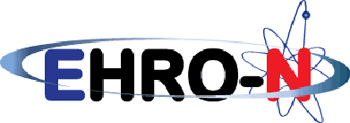EHRON: linking human resources supply to demand

The situation concerning nuclear human resources has deteriorated in the EU in the past decades and there is a risk of the loss of important nuclear knowledge if no action is taken. This prompted the Council of the EU to conclude, on 1 December 2008, that it is “essential to maintain in the European Union a high level of training in the nuclear field” and, at the same time, preserve the skills that we already have. The latter is especially true if we are to guarantee the highest level of nuclear safety (subject of the Council’s Nuclear Safety Directive, which was adopted on 25 June 2009).
The idea of a European Human Resources Observatory for the Nuclear Energy Sector (EHRO-N) was born within the European Nuclear Energy Forum (ENEF), which was launched by the European Commission’s Directorate General for Energy (DG ENER). The setting up of EHRO-N began officially in October 2009. The EC’s DG JRC - Institute for Energy - was charged with its management. A Senior Advisory Group (SAG) provides guidance on conceptual issues.
Cooperation and coordination with international actors such as the IAEA and the OECD/NEA were established since the situation regarding nuclear human resources is similar throughout the world.
By creating a database of nuclear skills needed in the short, medium, and long-term perspective, and by identifying gaps and deficiencies in the educational and training infrastructure in the EU, EHRO-N should be able to link supply and demand for nuclear human resources in the EU.
Recently, co-operation was enlarged to include the ENS with the starting up of bi-lateral discussions with the aim of streamlining resources and obtaining optimal results.
This process went very smoothly, as the current President of the ENS is also a member of the Senior Advisory Group (SAG) of EHRO-N.
The way EHRO-N operates is straight forward, consisting mainly of 2 instruments:
An Operating Agent (independent, EC-JRC-IE)
The operating agent provides the necessary infrastructure, networking and long term stability. Activities focus on the setting up and maintenance of a database and the carrying out of regular analyses, reviews, compilations and specifications. The activities also include the tendering of specific studies, the production and the distribution of regular communications, the organisation of workshops and meetings, support for the Steering Group, the establishment and maintenance of close links with organisations and related initiatives, e.g. ENEN, SNE-TP, ENEF, ENS etc. and the provision of co-ordination where necessary.
|
Senior Advisory Group (SAG)
The SAG is composed of highly-qualified experts, who meet a maximum of twice a year and focus on providing general guidance on conceptual issues.
These could be, for example, the type of data and data quality required, the analysis to be performed, the endorsement of major HRO reports and the preparation and execution of major communication campaigns. |
One objective is to organize an EHRO-N launch event with, featuring the presentation of trend analyses, in the first half of 2011.
|

